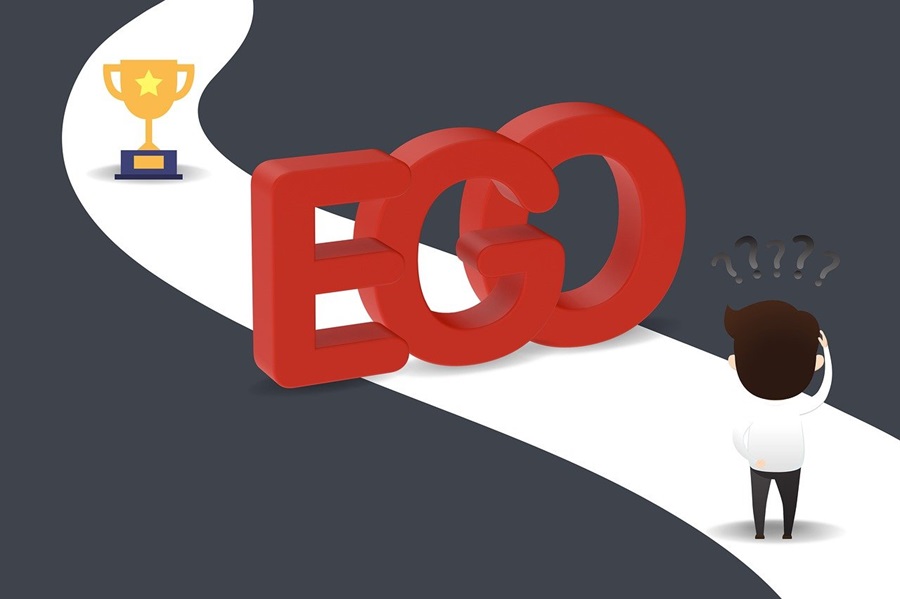- Opinion
- 2 de December de 2024
- No Comment
- 11 minutes read
The death of expertise leads to the rise of narcissism, anxiety, and populism

The death of expertise leads to the rise of narcissism, anxiety, and populism


“A people who mean to be their own governors must arm themselves with the power which knowledge gives” (James Madison)
Tom Nichols’s book The Death of Expertise: The Campaign against Established Knowledge and Why It Matters, published in 2017, warns of the deliberate and widespread devaluation of knowledge that has taken place in the United States in recent decades. This phenomenon has fostered a resentful society, distrustful of experts and entrenched in obstinate ignorance. It quickly becomes evident that this issue is not exclusive to the United States but is equally applicable to European and Spanish societies.
From the very preface, Nichols alerts readers that this phenomenon is closely tied to the narcissism that has steadily developed in Western developed countries. In his view, this narcissism stems from a combination of three factors: decades of being told to focus on personal needs, rising living standards, and the absence of unifying internal or external threats that previously bonded societies. These factors, compounded by the proliferation of limitless information accessible via mobile devices—regardless of its quality—create an illusion of knowledge. This illusion, in turn, makes self-correction and continuous learning nearly impossible, particularly when search engine algorithms cater to psychological biases, and digital technologies exploit human vulnerabilities to capture our attention indefinitely (Harris, 2016).
Nichols’s thesis inevitably leads one to reflect on the state of our current education system, particularly when considering the first cause of narcissism—decades of being told to focus on personal needs. In Spain, for instance, education has for years been tailored to students’ interests, emotions, preferences, and motivations. This has fostered “individuals incapable of managing even minimal levels of frustration, and, in some cases, genuine narcissists accustomed to negotiating with parents and teachers on equal footing” (Fernández Liria et al., 2023: 170). Such practices persist despite research disproving the efficacy of tailoring education to students’ interests (Dweck, 1986; Urban & Kaplan, 2020) or focusing on activities they enjoy, such as gamification, which has been shown to negatively impact learning outcomes (Carpenter et al., 2020). Emotional stimulation, while well-intentioned, can similarly impede learning (Vogel & Schwabe, 2016), and student motivation depends on factors beyond mere interest in the topic, such as (I am aware this may sting for advocates of the so-called “new old education”) the desire to fulfil what they perceive as their responsibility (Eccles, 2005). Nevertheless, these approaches are championed under the guise of offering a more “equitable and democratic” education system. This misguided reasoning undermines the fundamental principle that teachers, as experts in pedagogy, are there to guide students out of ignorance, not to place them on equal footing. This is an affront to common sense and a violation of the right to receive a dignified and high-quality education in state schools.
Proclaiming statements like “I’ve learned as much from my students as they have from me” may sound “cool” and “student-friendly,” but if taken literally, they imply that the teacher is failing to fulfil their role. As Fernández Liria et al. (2023: 199) succinctly argue, “It is false that a ‘democratisation’ of education produces democratic, critical, and autonomous citizens—the ostensible goal of current educational legislation. What this (supposed) democratisation, which devalues content, actually produces is functionally illiterate individuals incapable of acting as critical citizens”. As is evident, this egalitarian pedagogical approach is precisely the root cause of the very inequalities it professes to combat.
Moreover, current trends in education, such as project-based learning—the hallmark of the so-called “new old education”—exemplify this flawed approach. These methodologies rely on discovery-based learning through trial and error, with the teacher acting as a minimally involved guide-observer, dismissing the value of direct instruction from a knowledgeable expert. This approach once again places the student on the same level as the teacher, despite the fact that students lack the foundational knowledge required to integrate complex new information. Without adequate scaffolding, this overloads working memory, impeding learning (Garnett, 2020). By contrast, expert-led instruction, where teachers sequence complex content step-by-step and provide tailored examples, has been shown to be more effective (Chen et al., 2016). Ironically, like most of the misguided methodologies with good intentions that arise from the old “new education,” it disproportionately harm socio-economically disadvantaged students, whose families possess limited cultural capital (Education Endowment Foundation, 2016). These methods, ostensibly in the interest of students, ultimately work against them.
The result is an education system that leaves students ill-equipped to navigate their personal and professional lives and incapable of exercising critical thinking skills to discern the truthfulness of the information they encounter (García Fernández & Galindo Ferrández, 2024). As evidenced by the 2018 PISA Report, which revealed that nine out of ten Spanish students cannot distinguish fact from opinion by the end of compulsory education, it is little wonder that populism and its electoral support are surging both in Spain and globally. This ties directly to the Dunning-Kruger effect, (so named because it was described by Cornell University psychologists David Dunning and Justin Kruger in 1999), whereby individuals with limited knowledge tend to overestimate their abilities and the validity of their ideas, as their incompetence prevents them from recognising their own errors. This phenomenon was memorably encapsulated by Charles Bukowski: “The problem with the world is that the intelligent people are full of doubts, while the stupid ones are full of confidence.”
Narcissism and conspiracy theories are, in essence, two sides of the same coin—ignorance. Nichols (2017: 58) explains: “Conspiracy theories are deeply attractive to people who have a hard time making sense of a complicated world and who have no patience for less dramatic explanations. Such theories also appeal to a strong streak of narcissism: there are people who would choose to believe in complicated nonsense rather than accept that their own circumstances are incomprehensible, the result of issues beyond their intellectual capacity to understand, or even their own fault.” Students must adapt to knowledge, not the other way around, in order to avoid falling into absolute relativism and the absence of truth, thus becoming cannon fodder for the misinformation and fake news proliferating on social media. Otherwise, we risk creating a society where the least informed individuals are seen as experts and demand that their uninformed opinions carry the same weight as those of true specialists on matters in which they have made no effort to acquire knowledge.
What is needed is a courageous and demanding education system that respects and values its students by setting high expectations and preparing them for adulthood. This is a societal imperative for the progress of any country in political, economic, cultural, and moral spheres. However, this is not the case today. Nichols incisively observes that “The stampede toward college by unprepared students is also due to a culture of affirmation and self-actualisation that forbids confronting children with failure” (2017: 78). While Nichols is referring to the United States, this is all too familiar in Spain. We shield students from failure, artificially inflating their grades to boost their self-esteem rather incentivising achievements, preventing them from confronting their ignorance through effort, and removing all consequences for the lack of it. However, once they reach adulthood, all this overprotection (which many families also contribute to) will no longer be there, and they will feel as though they are facing the abyss alone, realising that their country has failed to provide them a quality education to live independently. This overprotection during childhood and adolescence, as numerous psychological studies have shown, results in insecure, dependent, and fearful individuals who suffer from high levels of anxiety in adulthood, as reflected in Spain’s alarming mental health statistics for young adults.
To conclude, as Nichols aptly puts it (2017: 84): “Unearned praise and hollow successes build a fragile arrogance in students that can lead them to lash out at the first teacher or employer who dispels that illusion, a habit that proves hard to break in adulthood”.
Bibliography:
Carpenter, S.K., Witherby, A.E. & Tauber, S.K. (2020). On Students’ (Mis)judgments of Learning and Teaching Effectiveness. Journal of Applied Research in Memory and Cognition, 9(2), 137-151.
Chen, O., Kalyuga, S. & Sweller, J. (2016). When Instructional Guidance Is Needed. Educational and Developmental Psychologist, 33, 149-162.
Dweck, C.S. (1986). Motivational Processes Affecting Learning. American Psychologist, 41(10), 1040-1048.
Eccles, J.S. (2005). Subjective Task Value and The Eccles et al. Model of Achievement-Related Choices. Handbook of Competence and Motivation, 105, 121.
Education Endowment Foundation (2016). Project based learning. Testing the Impact of Project-based learning in secondary schools. Durham University. https://educationendowmentfoundation.org.uk/projects-and-evaluation/projects/project-based-learning
Fernández Liria, C., García Fernández, O. y Galindo Ferrández, E. (2023). Escuela o barbarie. Entre el neoliberalismo salvaje y el delirio de la izquierda. Nueva edición actualizada y aumentada. Akal.
García Fernández, O. y Galindo Ferrández, E. (2024). Aprendizaje basado en proyectos. Un aprendizaje basura para el proletariado. Akal.
Garnett, S. (2020). Cognitive Load Theory: A Handbook for Teachers. Crown House Publishing.
Harris, T. (2016). How Technology is Hijacking Your Mind — from a Magician and Google Design Ethicist, Thrive Global.
Nichols, T. (2017). The Death of Expertise: The Campaign against Established Knowledge and Why It Matters. New York: OUP.
Urban, T. & Kaplan, A. (2020). The Origins, Evolution, and Future Directions of Achievement Goal Theory. Contemporary Educational Psychology, 61, 101862.
Vogel, S. & Schwabe, L. (2016). Learning and Memory Under Stress: Implications for the Classroom. npj Science of Learning, 1(1), 1-10.
Source: educational EVIDENCE
Rights: Creative Commons

